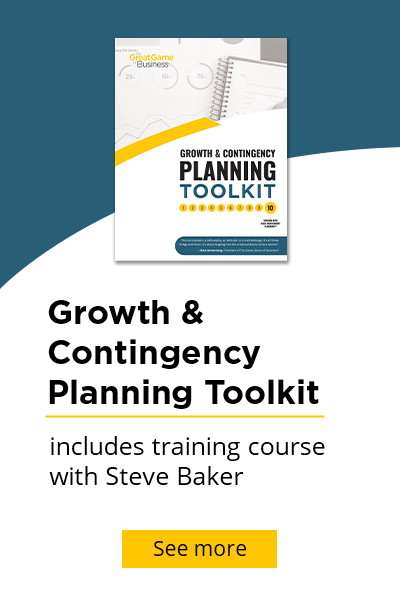 In a previous column titled Great Expectations, I urged business owners to have realistic expectations for their employees.
In a previous column titled Great Expectations, I urged business owners to have realistic expectations for their employees.
Now let's build on that message: Define your expectations.
In my role as a business coach, most of the issues I hear about are related to employees. And more often than not, a lack of clear expectations is at the root of the problem.
We usually let our people know how to do a job. "Open the software. Click the blue icon. Use the menu to find the customer ..."
But how often do we let them know what behavior we expect, or perhaps more importantly, why we expect it?
If the only clues to acceptable behavior are the inevitable corrections that come when straying off course, it may take a long time for your team to figure things out for themselves.
If you expect your team members to treat others with respect, just say so. Clearly. Directly. Early and often.
Some readers know that I own Arch Engraving in Kirkwood. We make and sell awards, signs, nametags and personalized gifts. In 2010, I bought out my two partners and became sole owner. After that, we were busy moving the facility and creating a spin-off business. The dust has settled so I finally found time to create a "culture document." It was rolled out in late 2012 and early 2013 for our 10 full-timers and various part-timers.
This document contains our Mission, Vision and 6 Guiding Principles. Under each Guiding Principle are 4 or 5 bullet points to explain the principle.
The contents were reviewed individually with each employee. The Guiding Principles and underlying bullet points were used as the performance review form. Since this is brand new for everyone, the review meetings were mostly about explaining our direction and our "why", with suggested (and in some cases, required) improvements noted as appropriate. I tried to use these primarily as educational meetings, and as my opportunity to get feedback on the document. After all, they were seeing these expectations in writing for the first time so there was no justification to get all worked up about non-compliance.
Going forward, though, this document will be our guide. Everyone now knows we will hire, fire, reward and promote based on it. They know to filter all decisions through it. Our Mission tells them what we're all about. Our Vision shows where we're going.
I'm not kidding myself - there will be set-backs. But staying the course and using the document in our daily work will make it real. It's not just a plaque on the wall.
Some experts advise to make this sort of work a team effort. In this case, I did it myself and tweaked it based on employee feedback. Right or wrong, I felt the business should reflect my own values and expectations.
There's no doubt in my mind that this is now the company's most important document and is critically important to workplace culture.
Do you have a culture document? I'll show you mine if you'll show me yours. I intend to write more on this topic and would love to find great examples to highlight. Send me an email.
Bill Collier is the St. Louis area coach for The Great Game of Business. He helps businesses improve their financial results. He is the author of “How to Succeed as a Small Business Owner … and Still Have a Life”. Bill can be reached at 314-221-8558, GreatGame.com/stl or billcollier@greatgame.com.
.png)








.png)




-5.png)

